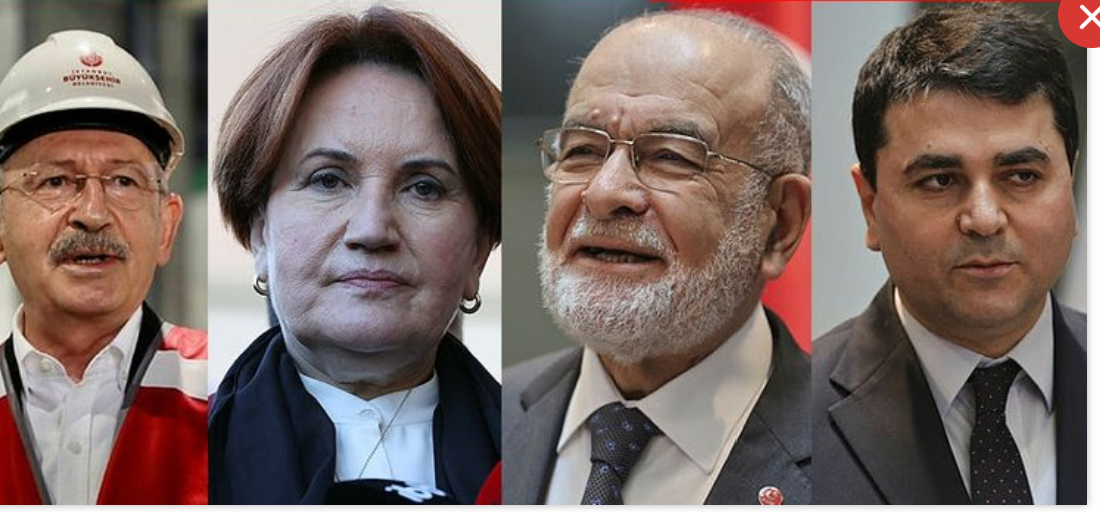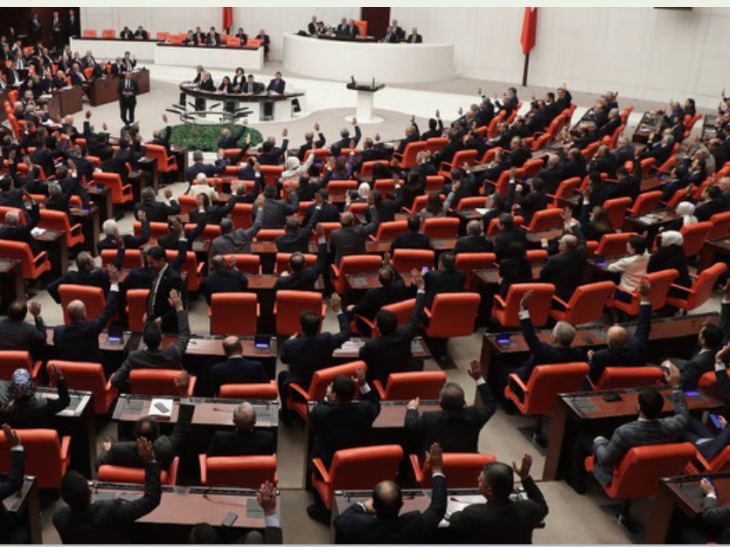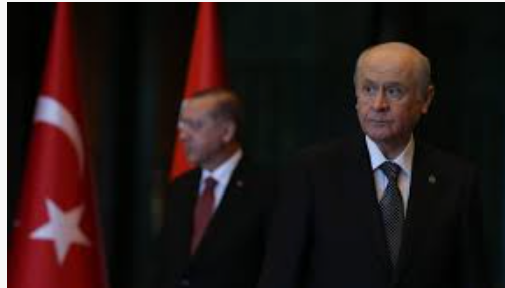Turkey’s Opposition Parties Hope Cooperating Will Deal Blow to Erdogan
 millet-ittifak1
millet-ittifak1
Turkey’s opposition groups can only defeat President Recep Tayyip Erdogan through an alliance, the country’s main opposition party told The Media Line, amid polls showing a decrease in support for the president and his party.
Surveys out this month have suggested that an opposition alliance formed between the six disparate parties could win a parliamentary majority against Erdogan’s party, the Justice and Development Party (AKP), which is in a coalition with the ultranationalist Nationalist Movement Party (MHP).
The opposition alliance includes the largest opposition party, the Republican People’s Party (CHP), as well as the Good Party, or IYI, led by a former Turkish interior minister who is popular with some nationalists.
A survey by Metropoll shows Erdogan’s popularity was behind three opposition politicians.
A poll by ORC Research shows that support for CHP and IYI is at 39.5% while Erdogan’s coalition has 38.7%, the Reuters news agency reported.
General elections in Turkey are scheduled to occur on or before June 18, 2023; opposition parties are calling for early elections in light of the poll results.
The CHP’s foreign policy vice chairman, Unal Cevikoz, says no one party will be able to form a parliamentary majority without a coalition.
“I think it is important to be in alliance and that, of course, increases solidarity and this is the rule of the game, which is prevailing currently in Turkish politics,” Cevikoz told The Media Line.
The opposition alliance has said it will create a draft constitution and bring back the position of prime minister, which was scrapped by a 2017 Erdogan-backed referendum that centralized power around the president.
Such partnerships have already proven to be successful for the opposition.
In 2019, the CHP’s candidates won elections for the mayors of Istanbul and Ankara while the party was in alliance with IYI.
The religiously conservative Saadet Party is also cooperating with the CHP, which strongly supports secularism through the separation of religion and the state.
Recently, the CHP has tried to make overtures to non-secularists.
Its 2018 presidential candidate, Muharrem Ince, who vowed to be “everyone’s president,” said he came from a conservative family and was widely photographed with his hijab-wearing mother.
Cevikoz insists that parties can work together regardless of their widely different identities.
“The cooperation between the opposition parties is not a matter of ideology. In Turkey, the basic confrontation and the paradigm is between those parties who favor democracy and those who are anti-democratic and authoritarian,” Cevikoz said.
The second largest opposition party, the pro-Kurdish HDP, is not part of the alliance, but Cevikoz said the party would go along with the alliance’s platform.
Kurdish votes are crucial to success in Turkish elections.
The HDP’s decision to not run a candidate in the mayoral race in Istanbul, where Kurdish voters represent 15% of the electorate, was a key factor in the CHP’s victory, demonstrating the importance of not splitting the opposition vote.
The loss of Istanbul and Ankara for Erdogan’s party is seen as the Turkish president’s greatest political defeat since coming to power.
Imdat Oner, a former Turkish diplomat, says there is little doubt that Erdogan will face a tough election considering the poll numbers.
“I think he’s really terrified of this unity,” Oner told The Media Line.
WATCH: 2022 Predictions For Turkish Politics
Oner, who is currently a policy analyst at the Jack D. Gordon Institute at Florida International University, said the potential strength of an alliance was shown in the 2017 referendum when opposition parties campaigned against increasing power in the presidency.
While Erdogan’s side won and his power increased, it was an incredibly slim majority of less than 52%.
Even if there is enough support for the opposition alliance, critics are concerned victory will not be guaranteed due to fears of a rigged election.
A report by the Organization for Security and Co-operation in Europe, or OSCE on the 2018 national election, stated that more than 1,000 ballot boxes were moved, which the opposition believed was meant to lower voter turnout in some areas.
Watch: Turkey Heading for Early Elections | Real Turkey
However, Oner said that if there is a large margin of victory for the opposition, then the gap could be too difficult to manipulate.
During the 2019 election for mayor of Istanbul, the first vote showed a slim victory of about 13,000 votes for the opposition candidate, Ekrem Imamoglu. However, the election was canceled and a second election increased the vote for Imamoglu to 800,000.
Imamoglu took office and is now seen as a top contender to be the opposition’s presidential candidate, although his fellow party member, Mansur Yavas, the mayor of the capital Ankara, has come out on top as the most popular politician in the country.
The opposition’s success in those elections have not stopped fears of what could happen if Erdogan loses in a presidential election.
The Turkish president and his allies have faced allegations of human rights violations and corruption which could raise the prospect of criminal prosecution if he were out of power, Oner said.
That has led to concerns over whether there would be a peaceful transition if Erdogan clearly lost the vote.
“I think that’s the $1 billion question,” said Oner. “I think that’s the main question right now in front of Turkey.”
Follow our English language YouTube videos @ REAL TURKEY: https://www.youtube.com/channel/UCKpFJB4GFiNkhmpVZQ_d9Rg
And content at Twitter: @AtillaEng






